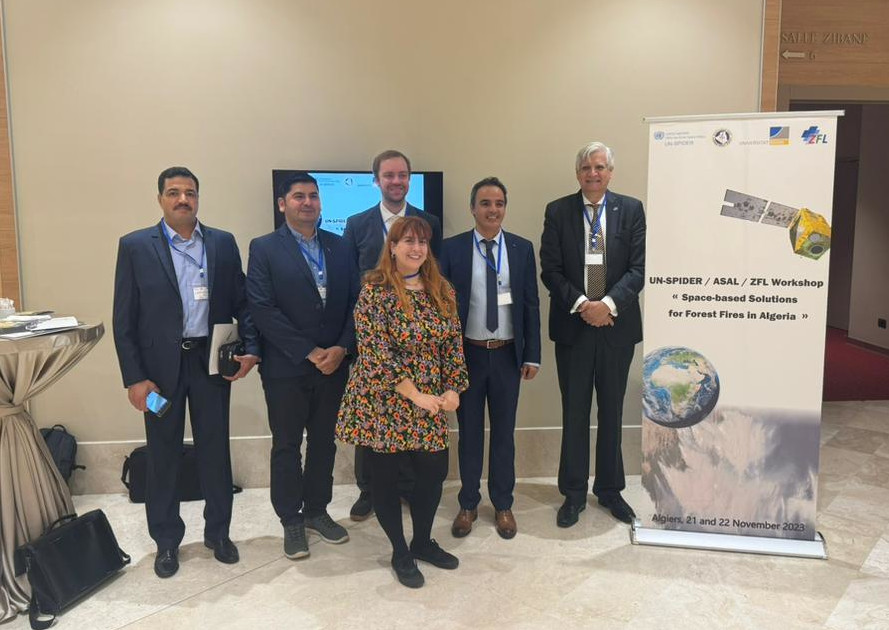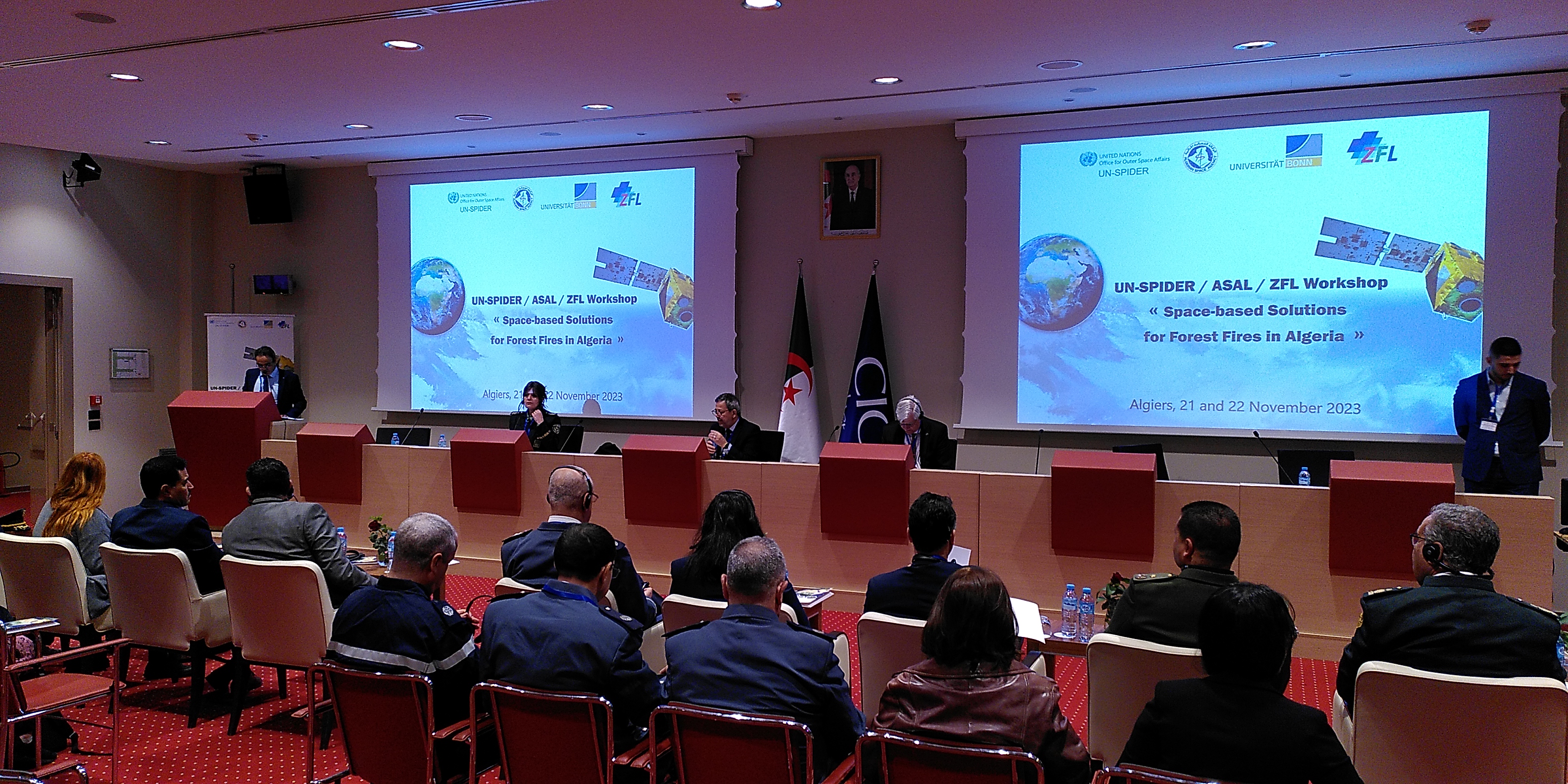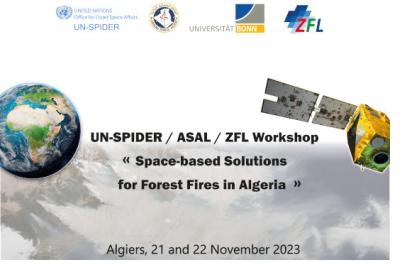In recent years, Algeria and other parts of Northern Africa, Europe, Asia, and America have been impacted by forest fires. Unfortunately, in July 2023, severe forest fires again impacted several regions of Algeria, killing around 30 people, including firefighting officers and injuring others. The General Directorate of Forest of the Ministry of Agriculture and Rural Development of Algeria has noted that in recent years, wildfires have become more frequent and intense, and now talk about mega-fires, which unfortunately, consume forests at a faster rate than in previous years, making it difficult to combat them.
As commented by Dr. Fethi Benhamouda, Director of Research at the Algerian Space Agency (ASAL), space technologies contribute to the mapping of the geographical extent and front of fires that may be active so that firefighters can develop a strategy to combat them and use their resources in a more optimal fashion; and once the fire has been extinguished, such space technologies contribute to map the burnt area and the severity of such forest fires.
To enhance the use of space technologies to contribute to prepare for, and respond in case of forest fires, UN-SPIDER, the Algerian Space Agency, and the Centre for Remote Sensing of Land Surfaces of the University of Bonn (ZFL) joined forces to organize the UN-SPIDER/ASAL/ZFL Workshop "Space-based Solutions for forest fires in Algeria". This workshop was organized in the Internacional Conference Centre in Algiers, Algeria, on 21 and 22 November 2023. It brought together nearly 30 experts from the UN-SPIDER Regional Support Offices in Colombia, Germany, Greece, and the United States; staff from the General Directorate of Forests, the Algerian Civil Protection Directorate, the National Risk Management Authority, ASAL, and several university researchers.
The workshop included presentations by ASAL on its efforts to use space technologies in case of forest fires, by the Directorate of Civil Protection of Algeria, the Tunisian National Office for Civil Protection (ONPC), and the University of Algeria. The BEYOND Centre of Excellence of the National Observatory of Athens (UN-SPIDER Regional Support Office) provided information on the FireHUB application that serves as a near real-time early warning system in case of forest fires in Grece. The Agustin Codazzi Geographic Institute of Colombia (IGAC, which is a UN-SPIDER Regional Support Office) introduced participants to a decision support system that has been developed to monitor conditions before forest fires, during and after. The Delta State University in the State of Mississippi, United States (also a UN-SPIDER Regional Support Office) made a presentation on the notions of geospatial intelligence as a way to enhance the use of geospatial information in forest fire and disaster management applications. The Centre for Remote Sensing of Land Surfaces of the University of Bonn (ZFL) provided information on the Global Wildfire Information System (GWIS) which has been established by the Copernicus Emergency Management Service. The European company ARGANS provided information on the International Charter Space and Major Disasters and the Charter Mapper tool to contribute to mapping the extent of forest fires and their burn severity.

UN-SPIDER used the opportunity to make an introduction to the use of space technologies in forest fires and presented its application to use historical data on forest fires included in GWIS to compile statistics to present data related to the indicating included in the Sendai Framework for Disaster Risk Reduction 2015-2030 to report on the impact of forest fires. UN-SPIDER also used the opportunity to raise awareness about its Recommended Practice to map the burn severity of forest fires and other similar recommended practices that can be used to generate additional space-based information used in disaster management applications.

The aims allowed participants to take stock of the contributions of ASAL, the University of Algeria, the BEYOND Centre of Excellence, Delta State University, IGAC, ZFL, and UN-SPIDER to share information on the applications they have developed to contribute to address challenges posed by forest fires. Participants used the opportunity to discuss the use of such technologies including their strengths and weaknesses, as well as to identify potential follow-activities.

